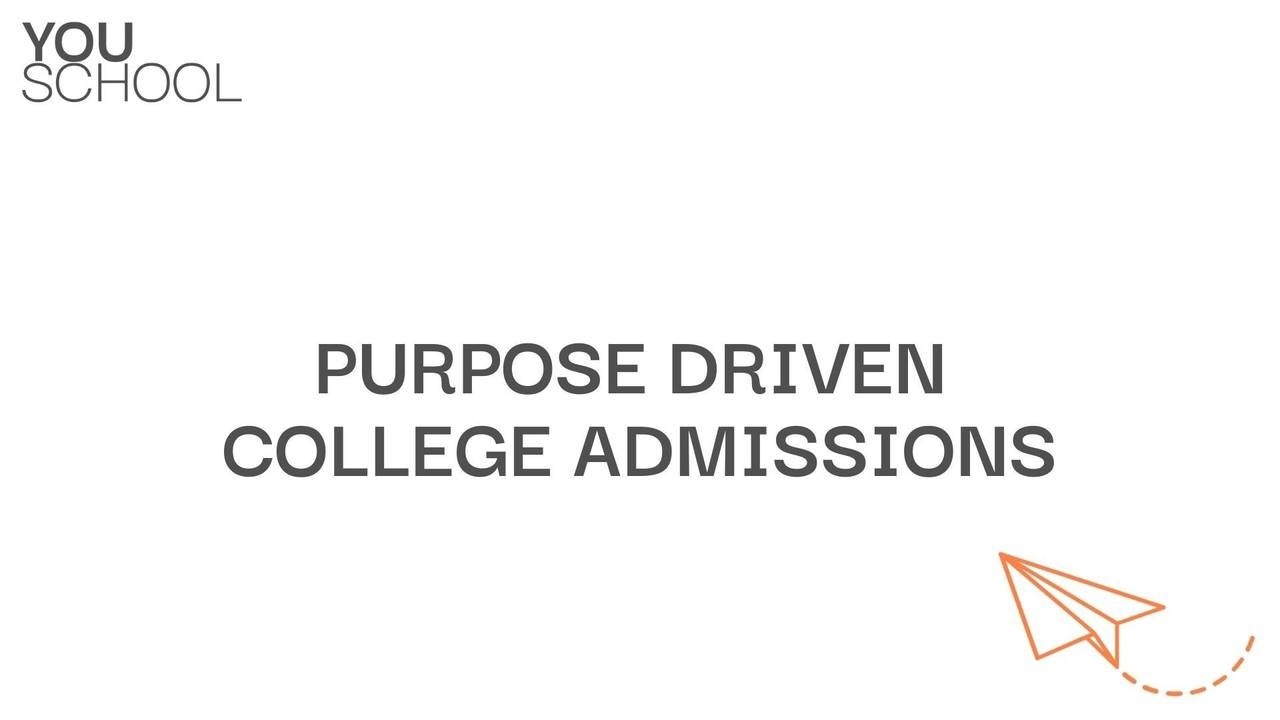Purpose Driven College Admissions

INTERNAL DRIVE TO MAKE THE WORLD A BETTER PLACE
Why do you want to go to college?
It's not uncommon for older high school students to express cynicism towards applying for college. It's just so overwhelming, competitive, and mysterious.
It's overwhelming because there's so much to be done on your own initiative. No one's going to do it for you. There aren't clear steps to take. There's tremendous cost and risk involved.
It's highly competitive- you know that there are only a few spots available and your very close friends will likely be competing against you for those spots.
It's mysterious- everyone heard about the 4.6 GPA kid with high SAT scores who didn't get accepted to Boulder. Or U of A. Or wherever. It's not clear-cut who gets in and who doesn't.
Many of the students we've talked to feel discouraged and get cynical. Those aren't good ingredients or a helpful foundation to go through an incredibly stressful process.
In a recent Wall St. Journal opinion piece, The Power of Purpose Driven Schools, writer Mark Oppenheimer makes the case for why students need what he calls a 'self-transcendent purpose' in order to help them stay focused and motivated. When we reach for goals for personal or selfish reasons (I want to be happy, I want to be successful), the theory is we will run out of gas and motivation. Rather, if we find a broader, more meaningful purpose behind our pursuits, we'll last longer and be more resolute.
In other words, Oppenheimer says, 'for those with self-transcendent goals, not for those with self-centered goals: “I want an education to help others,” not “I want an education to get a good-paying job.'" There's a body of research that asserts kids will learn more, stay focused longer, and push through setbacks if they believe the work they're doing matters on a larger scale than just their own life.
That's a problem for college admissions and for students preparing to go through the application process. The message they're told is, "This is your future, your life- you need to find what makes you happy and pick a school that you love." Apparently, for most students, that's not enough. Many are opting out of the rigorous process, choosing an easier path, a path of less resistance, overwhelm, or anxiety.
I chose a school I knew I would get into, hands down. I had no concept of going to school to earn an education that would give me the capacity to make a difference down the road, and I was so overwhelmed by the thought of trying to get in somewhere selective and getting rejected and everyone finding out about it that I chose something easy.
So what if we re-framed the transition from high school to college? Deep down, every teenager longs to know that they matter, their life counts, and they have inherent value to the world. They also are keenly aware of their youth, their lack of experience, and their inability to express a real contribution- yet.
What if the college admissions process wasn't just a game to try to win, what if it was a necessary step to finding a path towards making the world a better place?
What if we told students, "The world needs you to work really hard right now, put your head down and apply as well as you can to great schools. This isn't about you and your happiness, this is about the contribution we need you to make."?
Do you know what you're going to do when you get older?
Actually, forget what you're going to do. Figure out who you want to be.
Go through our When You Get Older free mini-course.
